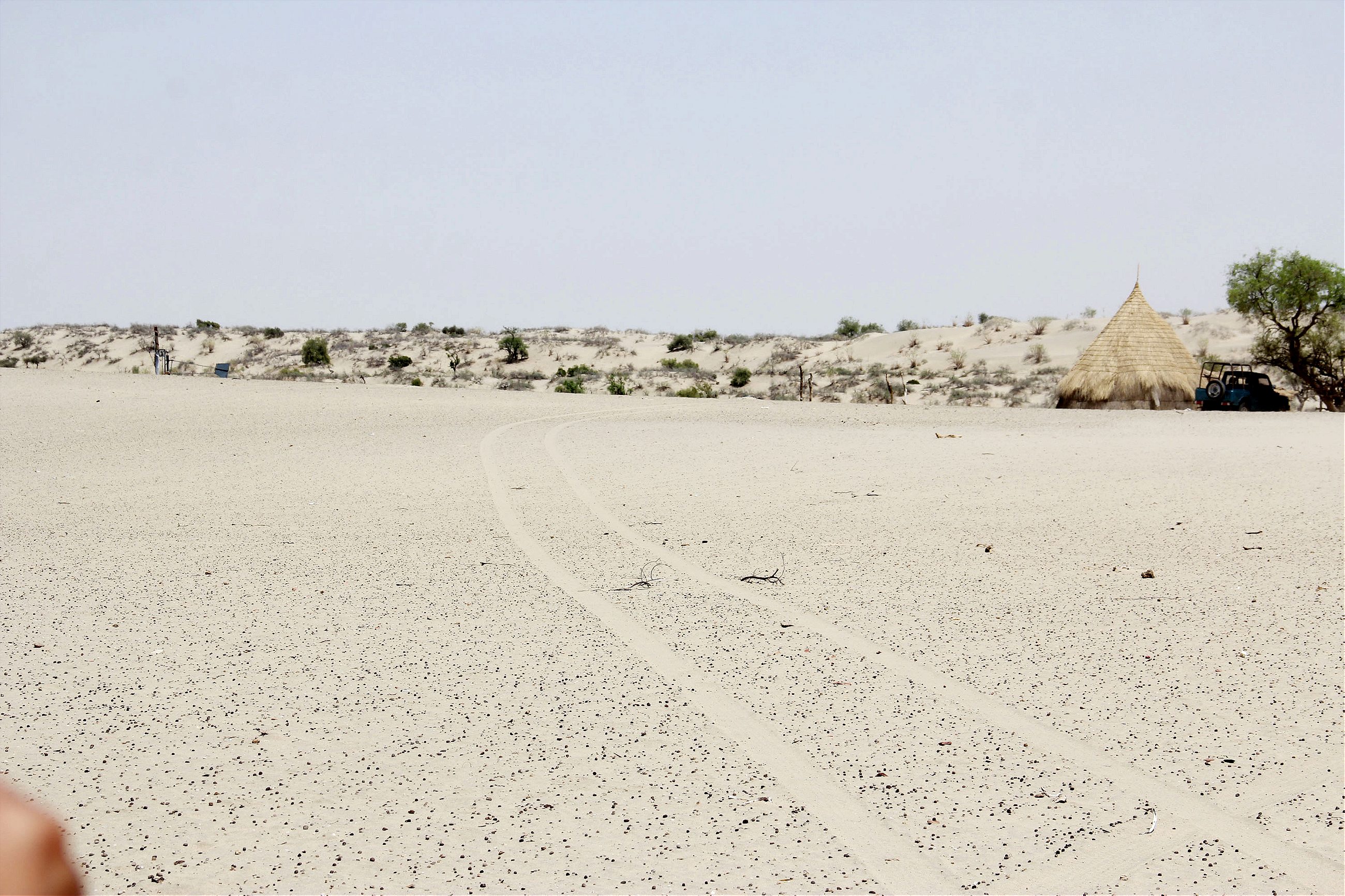The remote Pakistani desert of Achro Thar may not have much, but as the Dr. Haathi Singh and his famed camel ambulance prove, there’s ingenuity and kindness aplenty.
There were things I did not expect when entering the Achro Thar, the White Desert of Pakistan. I did not expect to see the hot white sand turn cold and grey, covered with a layer of broken seashells, a few feet before a lake, of all things: two square miles of water in defiance of the seasonal drought.
I did not expect to see just how pristine this place was. Unlike the Tharparkar desert—the southern-most part of the desert strip which runs on the east of Pakistan next to the Indian border, part of the enormous cross-border Thar desert system—Achro Thar has remained in its pristine condition, untouched by any signs of modern development, mainly because of the absence of a workable transport.
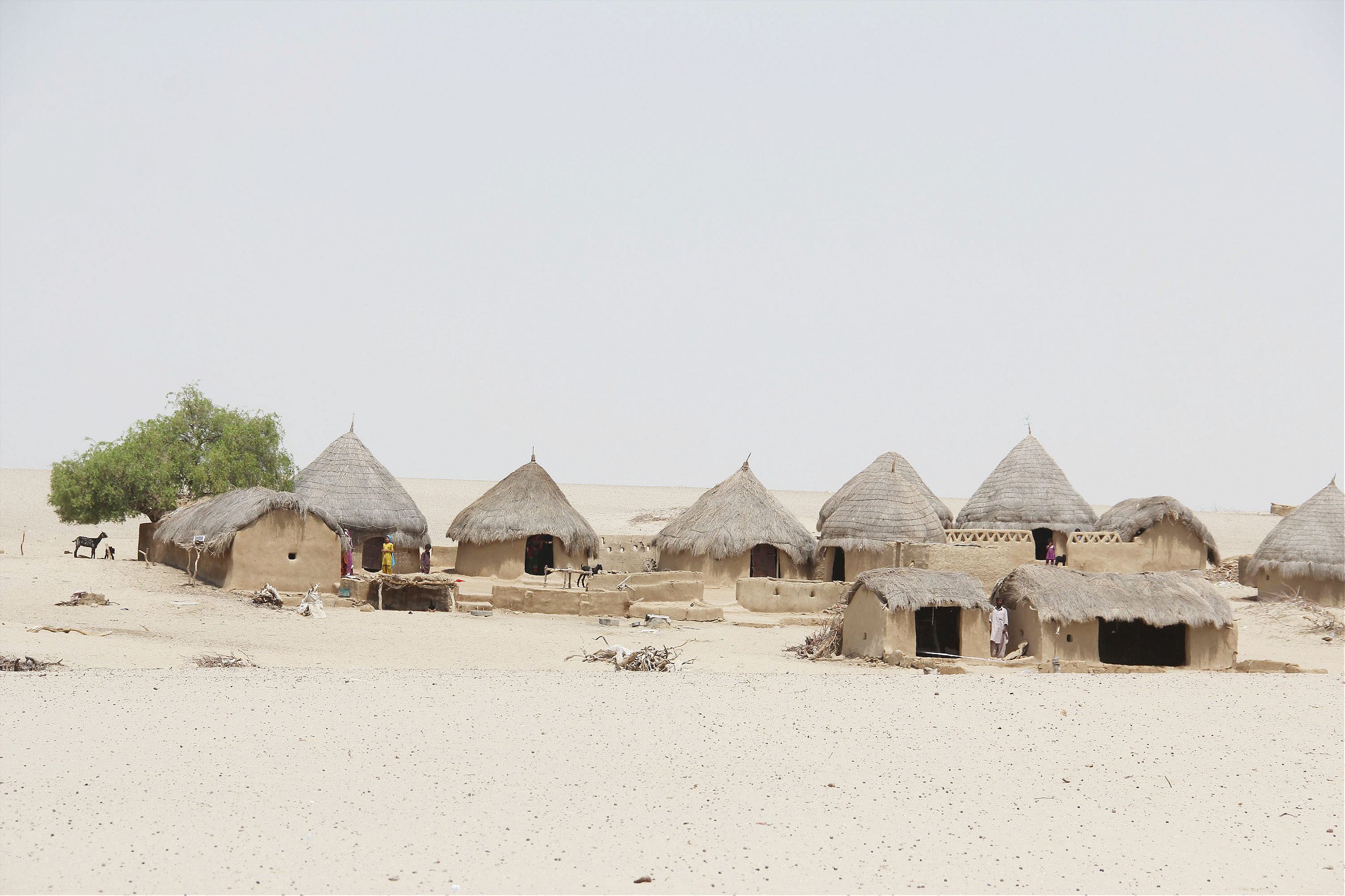
I did not expect to see a man climb on top of a jeep just to have a cell phone conversation, but this is what Mir Ali, our indefatigable driver whose family is from this desert, did every time he needed to reach the outside world. If a jeep is not handy, Ali tells me, then the only other alternative is to climb the tallest sand dune and hope that one of Pakistan’s five telecom giants has sent some signal your way.
These little lifehacks have crept into the society here, like how some villagers now charge their cellphones with small solar panels, but this is still a desperately remote place, pristine but vulnerable to cycles of drought and famine.
The drought here in Achro killed at least 10,000 animals
Earlier this year the Tharparkar desert made headlines because of a cyclic famine which caused more than 200 deaths. The media covered it with outrage, and the government rushed with food and potable water for the residents. But the same drought here in Achro killed at least 10,000 animals, including most of the local camel population of the three villages I visited, but few media and fewer officials made an appearance. It’s just too inconvenient for politicians to come here and have their pictures taken while distributing rations to the residents.
“We had camels but they died and so did a lot of our goats,” said Mir Ali’s aunt, when we met in her village. That’s why Mir Ali, who runs one of the few jeep ferries in and out of the desert, is fortunate to have such good work. His jeep leaves for Khipro town, about 60 miles away, every morning and then comes back later in the day. The morning ride is usually free but if you miss that, then you would have to pay up to 50 dollars (5,000 rupees) to call Mir Ali for a custom pickup time. For the people whose only possessions are the cattle they rear and the clothes they wear, arranging for 50 dollars is next to impossible.
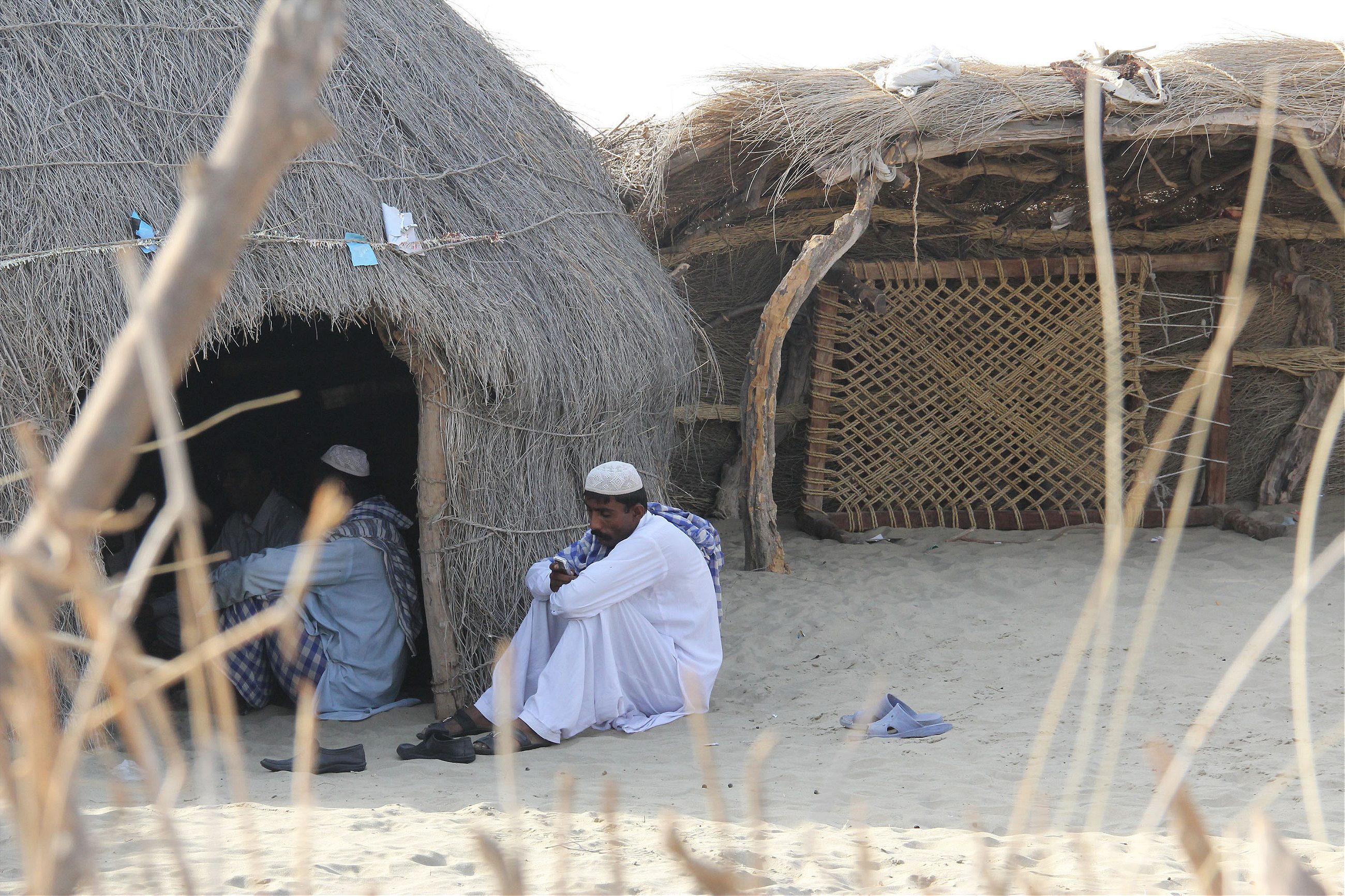
In case of a medical emergency, even if the family can afford the jeep, it can take more than two hours for it to arrive. By then it is often too late to take the patient anywhere.
Which brings me to the one thing I did expect to find in Achro Thar: the camel ambulance of Dr. Haathi Singh. Haathi is famous in these parts: the only man in his community to have attained higher education and the only professional doctor in the entire desert.
For the past seven years he has been traversing the white sandy dunes of Achro Thar to tend to the sick and critically ill. And though his name in Hindi and Urdu means elephant, it was a camel—the traditional mode of transportation across these dunes—that had often brought him on his rounds.
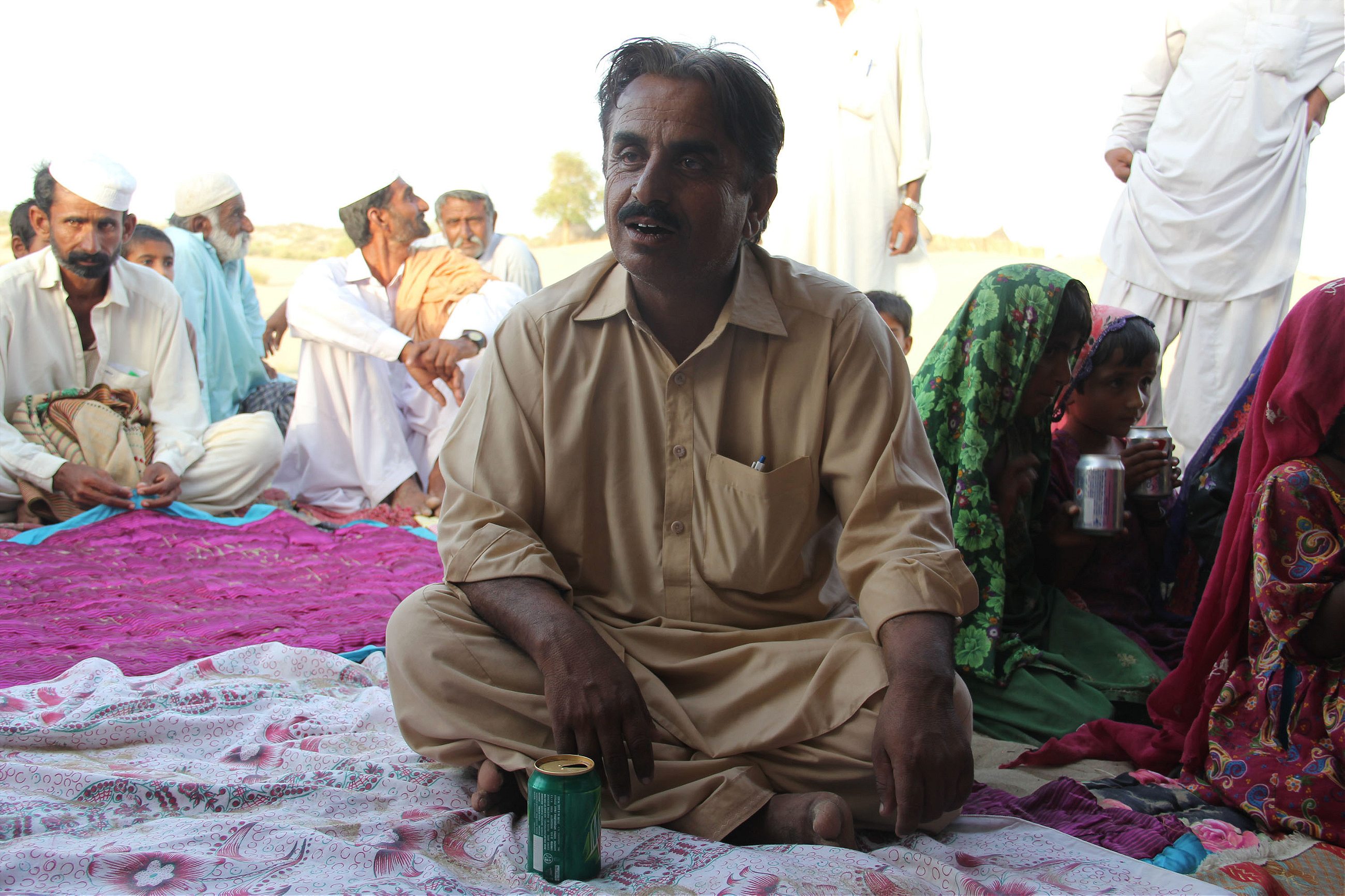
Haathi is of the Hindu Rajput community’s Thakur tribe. More than half of the population of Achro Thar is Muslim while the rest are Hindu, who live closer to the border that separates them from the Indian Rajasthan. The Hindu community of Achro, especially on the fringes near the Indian border, is relatively more educated than the Muslims residing further inland. Haathi was born in the Rablao village, one of only two villages out the 145 in Achro to have a primary school.
As in many traditional families, Haathi’s father wanted him to take up cattle rearing. But Haathi had grown up seeing animals and people dying alike because there wasn’t anyone in the desert to treat them. “I told him I wanted to become a doctor,” he says.
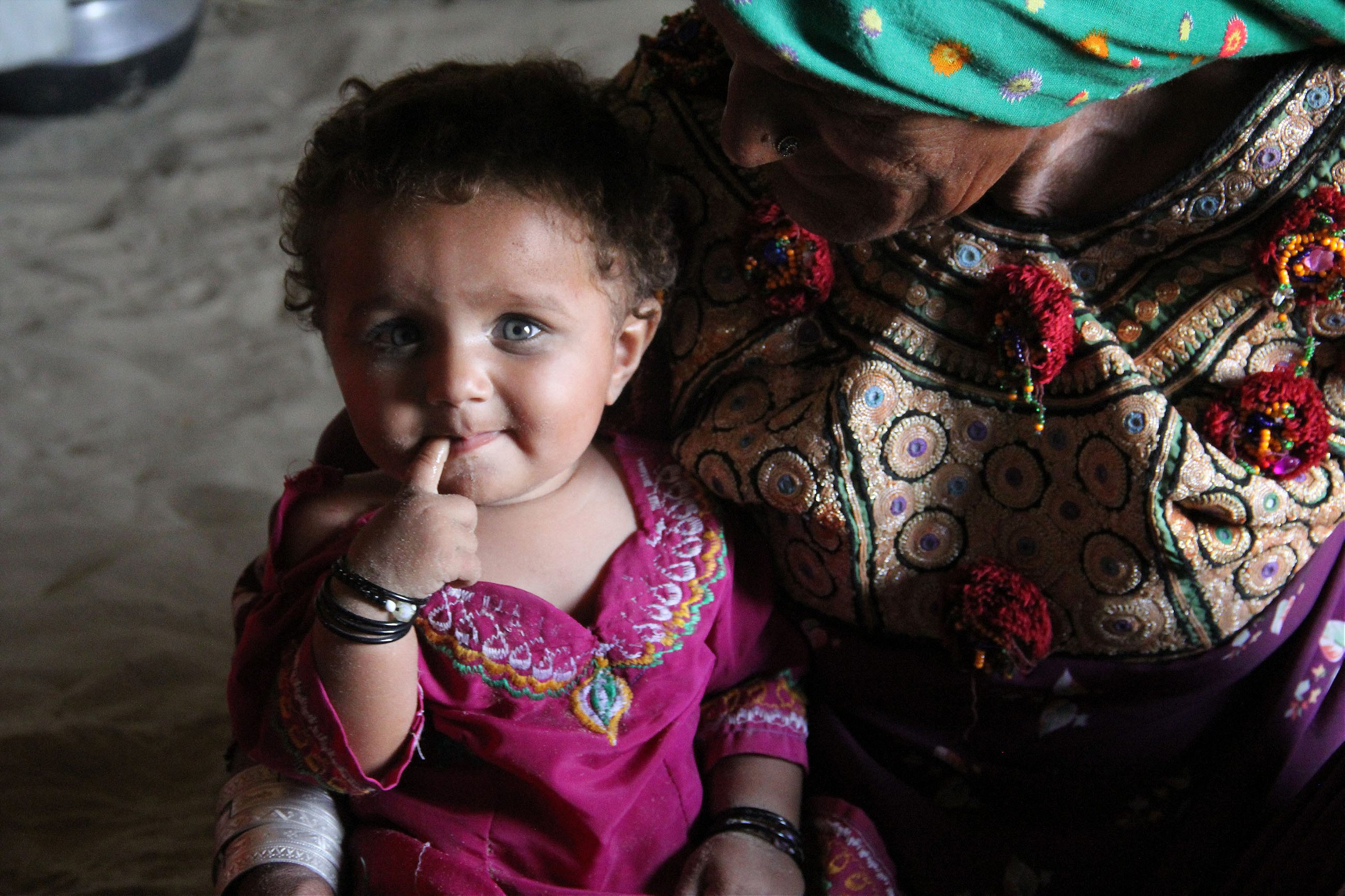
After finishing his village school he left for Hyderabad, the second largest city of Sindh after Karachi. Too poor to afford rent and tuition, he relied on the good graces of a landlord who let him work odd jobs in exchange for housing. By 1997 he made his way to a medical college and after graduating chose to go back home instead of trying to make it on his own in the big city.
For two years he worked at a maternity center in the city nearest to the desert, Khipro, more than 60 miles away. There he experienced the grim realities of childbirth in the desert first hand. “We have a saying that when a woman goes in labour in Achro,” he said, “arrangements for the birth of a child and the mother’s funeral go hand in hand.”
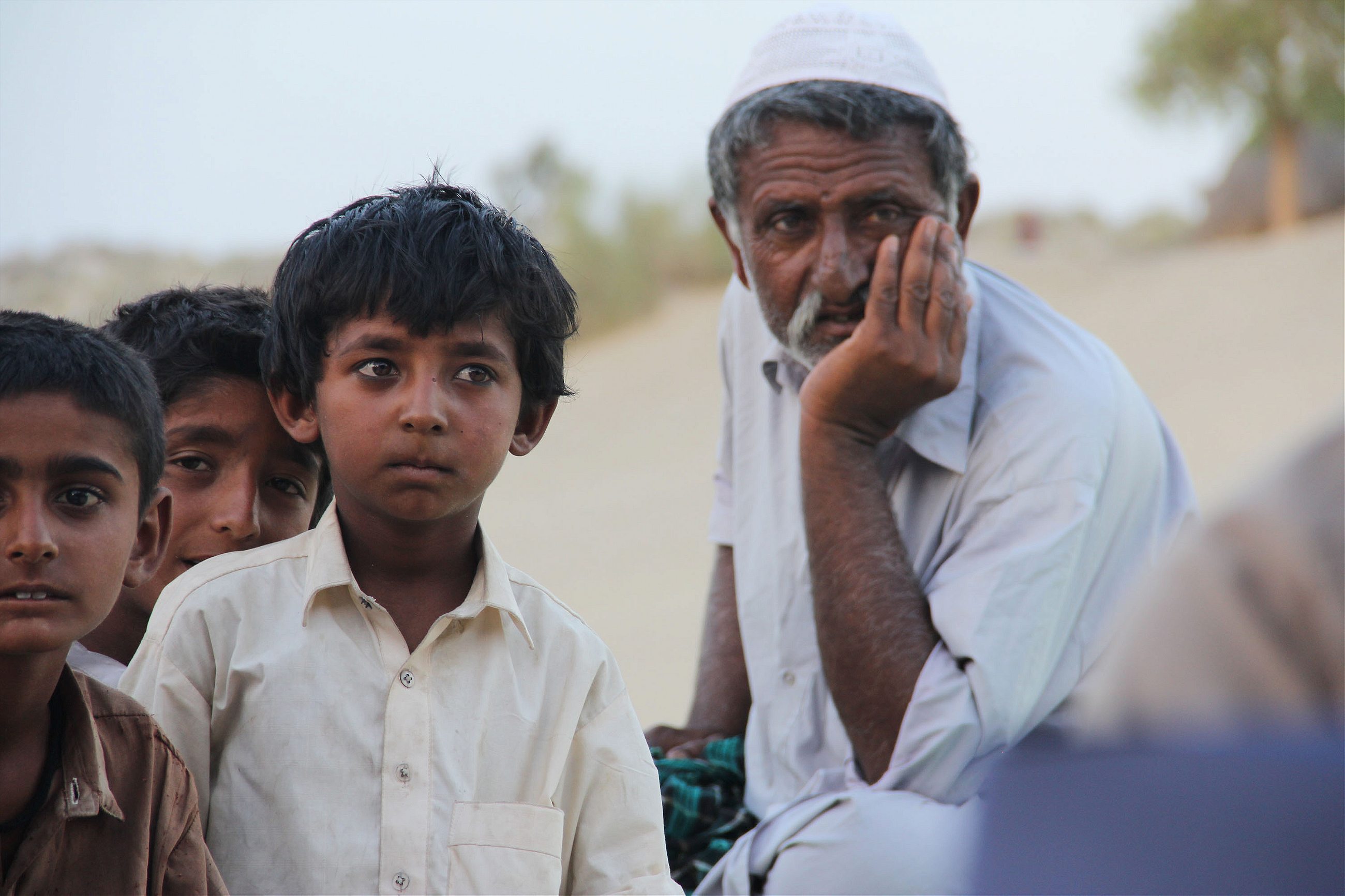
In 2003, a local NGO wanting to do development work in the area came knocking on his door and Haathi found his calling. Since then, his ‘camel ambulance’, a marvel equipped with gauze pads, antiseptic, pain killers, saline, and syringes, has been making the desert rounds.
I had been hoping to see both Haathi and his camel ambulance, but four years ago, he also started managing a government dispensary, which came with a few perks like a hard-area allowance and a jeep. He still hasn’t given up on the camels, but he only uses the animals when fuel isn’t available for his four-wheeler. So when I met him, he was in his jeep. No photos then of his dromedary apothecary, no chance for even a brief ride along. His camel will have to live on for me as a sort of legend. But that did not diminish the enthusiasm of his patients: when we rode into villages, people rushed out to meet him, waving.
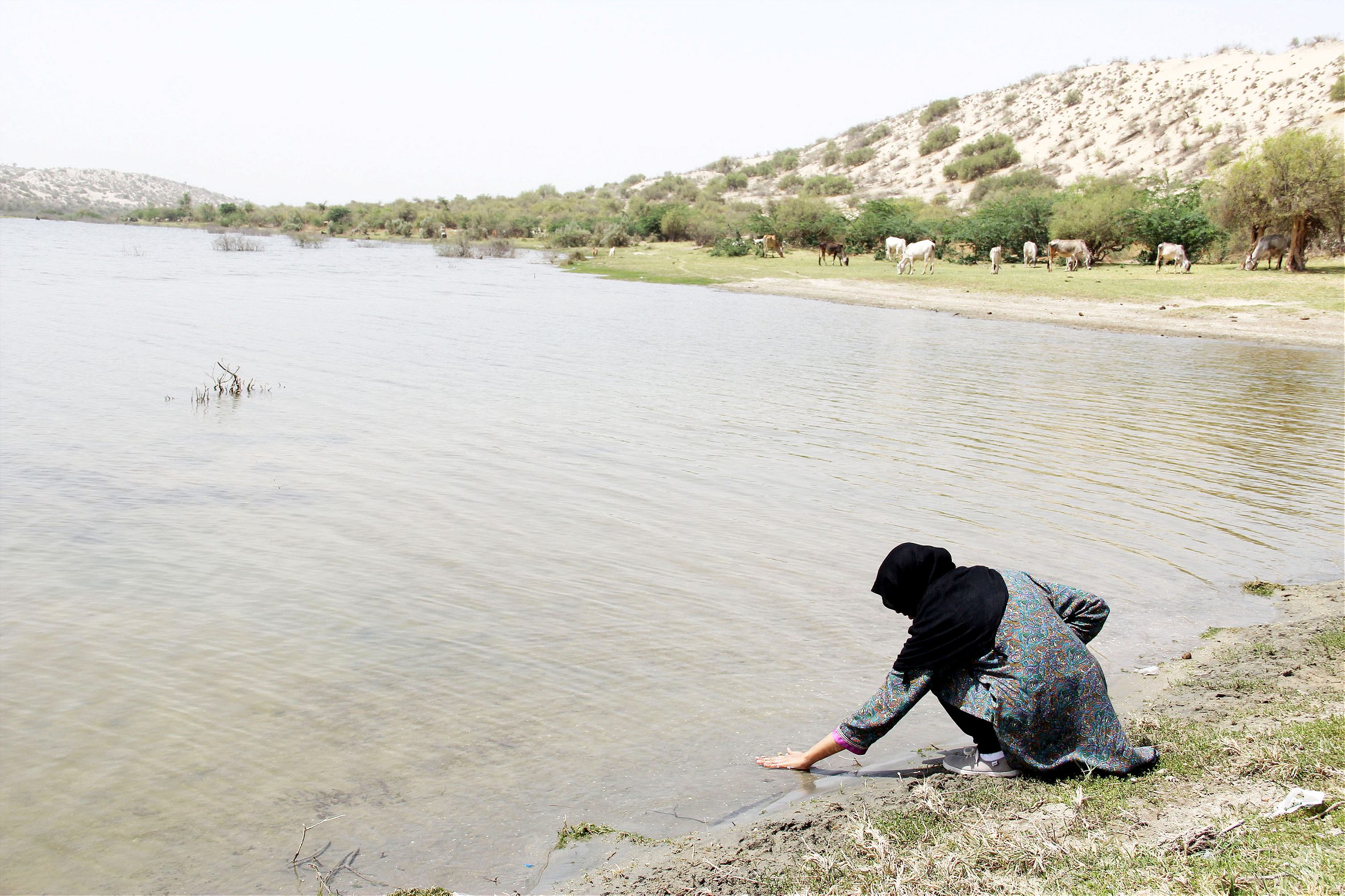
Achro is an especially devout corner of the world. The Muslims here, for example, belong to four Sufi lineages—the houses of Makhdoom, Ghousia, Pir Pagara and Shah Jilani—and they both worship and vote according to their allegiance. And so Haathi enjoys a bit of that devotion as well, but his is earned by good works, not lineage.
The villagers who surrounded the entrance of the straw hut we sat in told us that Haathi does not take payments except when offered. “He is one of us,” they said, with a bit of awe, as Haathi pretended not to hear.
“They are poor people and I have known them all my life,” he said. “If they can they will give me something. If they can’t then they can’t.”
It’s the hope of nearly everyone I met that at some point Achro might have roads like Tharparkar and the rest of this part of Pakistan. If they can just get that basic infrastructure, they say, then the spirit of native sons and daughters like Haathi and his famous camel ambulance will take care of the rest.
